How to build an outdoor cinema setup this summer
Watching movies in your backyard this summer doesn't have to be a dream – here's the best projectors for an outdoor cinema
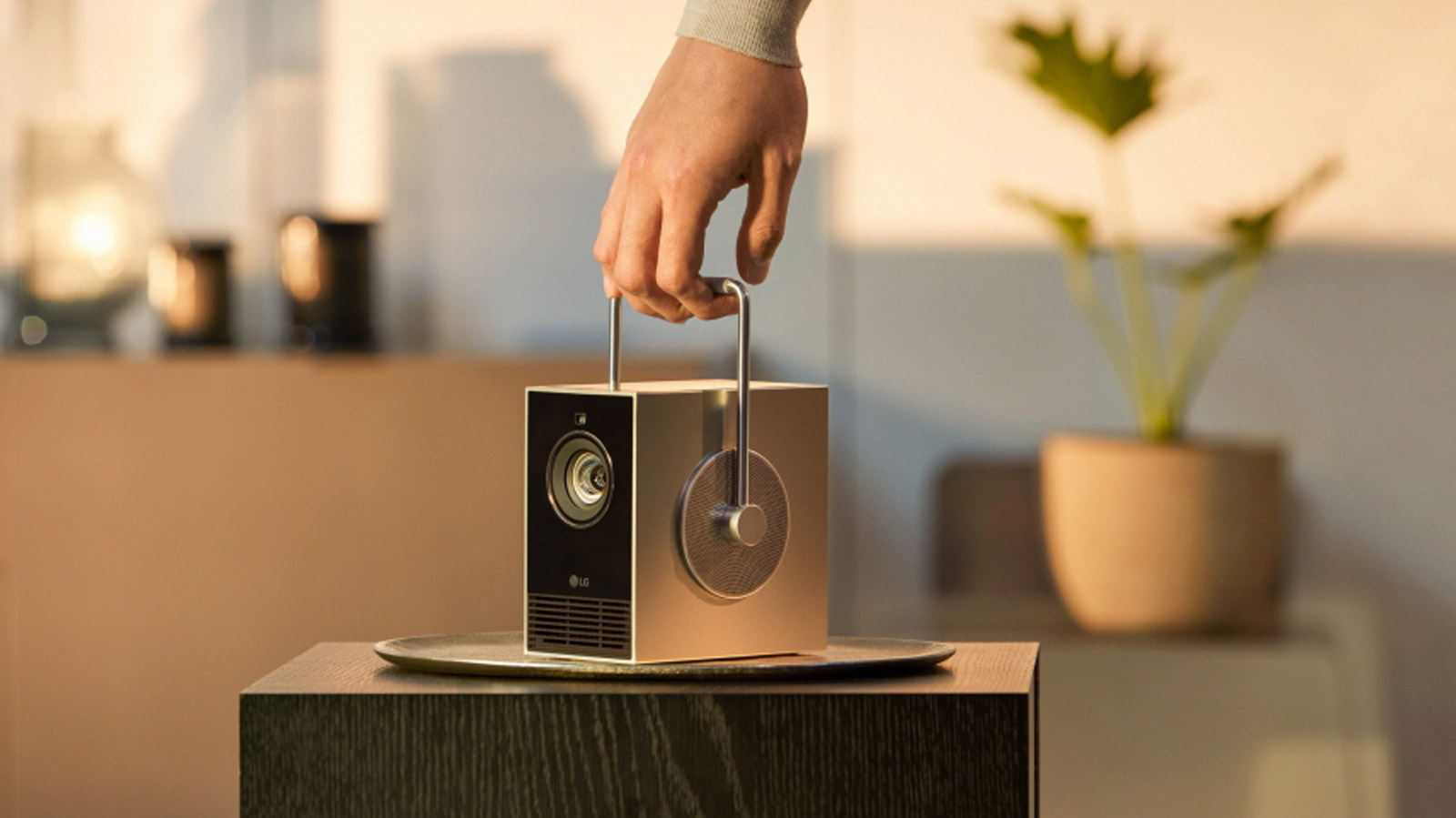
Sign up for breaking news, reviews, opinion, top tech deals, and more.
You are now subscribed
Your newsletter sign-up was successful
Sitting outside in the warm weather watching movies sounds almost too good to be true – but achieving a great outdoor home cinema isn't a wild dream in 2025.
Modern projectors, portable screens, and powerful wireless speakers are all pieces of the puzzle that make creating an outdoor cinema experience possible, and without breaking the bank if you buy smartly.
The best projectors like the Epson Pro Cinema LS12000 can achieve high-def 4K projection at up to 130 inches, or nearly 11 feet, which might even be enough to make your local Vue or Odeon jealous.
And for anyone who doesn't have the space for a larger projector, the best portable projectors like the Samsung The Freestyle 2nd Gen, which can hit a staggering 100 inches on a wall, are well worth considering.
To help you find the right kit, we're taking a look at the best projectors for outdoor use, as well as the best projector screens and audio options that blend amazing sound with portability and convenience.
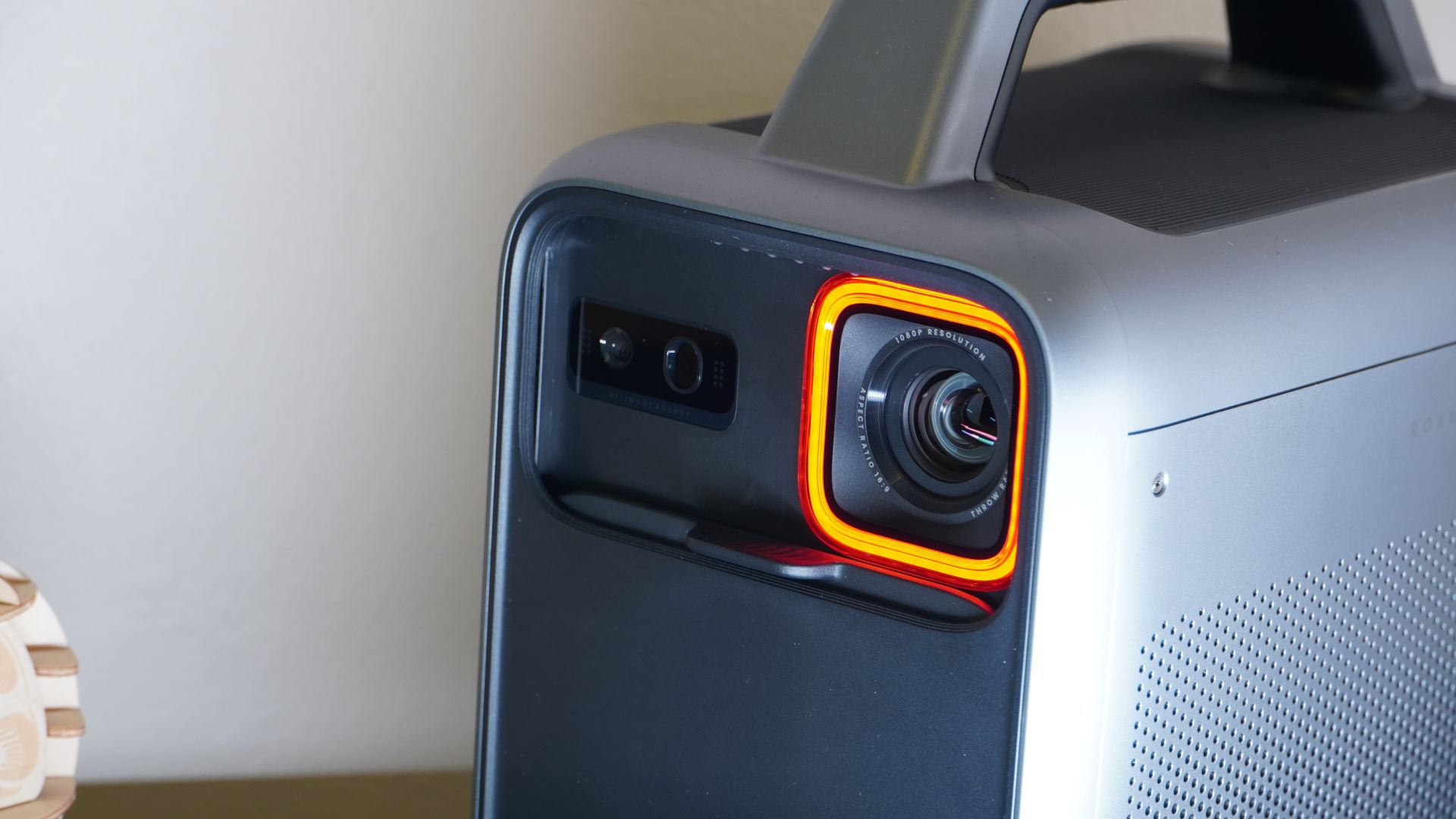
The best projectors for outdoors
Finding the right projector for your setup is the first, and perhaps most important, part of the journey, and the right one depends on your outdoor area, as well as your budget and general preferences.
Taking a step back, some key specs to consider are brightness (measured in lumens), whether to go for 1080p or 4K, and laser vs. LEDs.
Sign up for breaking news, reviews, opinion, top tech deals, and more.
Let's take a look at each in turn.
- Brightness: Measured in lumens, the brightness of your projector will make a big difference if you're using it after dark. Aim for at least 3,000 lumens if you're planning to screen movies at dusk. In general, portable projectors that can pump out 500 to 1,000 lumens work well after dark.
- Full HD vs. 4K: Many of the best projectors (and especially those that draw power from the mains) can work in 4K, and those who want to project movies as big as possible will want to spend a little extra to get the extra pixels. Having said that, 1080p is likely to be fine for many, and most portable projectors tend to use it.
- Laser vs. LEDs: Laser projectors typically offer higher brightness, better contrast, and longer lifespan than LED models, making them ideal for outdoor setups, though LED projectors are often more compact, affordable, and energy-efficient.
In terms of the actual purchase, the first thing to consider is size: Where is the projector going to go? How sturdy is where you're putting it? How big do you want the overall screen? Do you have access to mains power?
If you have a large, solid table and the ability to run cables out to it then your options are pretty broad and you can focus on high-end models like the Epson Pro Cinema LS12000 or LG CineBeam Q, both of which work up to 4K.
The Epson Pro Cinema LS12000 is a 4K laser powerhouse and will match the needs of even the most ardent, hard-to-please cinema enthusiast, offering exceptional brightness, contrast and HDR support.
The only issue for some might be price – around £4,000 ($5,400) at the time of writing – but anyone wanting best in class should look no further.
LG's CineBeam Q, while not at the low end of the spectrum, is a more affordable 4K option that balances portability, colour accuracy, and smart features, retailing for around £700 ($950) at the time of writing.
It's also worth considering the BenQ X3100i, which sits somewhere between the Epson and LG projectors while offering up to 200 inches – yes, 200! – of projection real estate, for a truly unrivalled outdoor cinema setup.
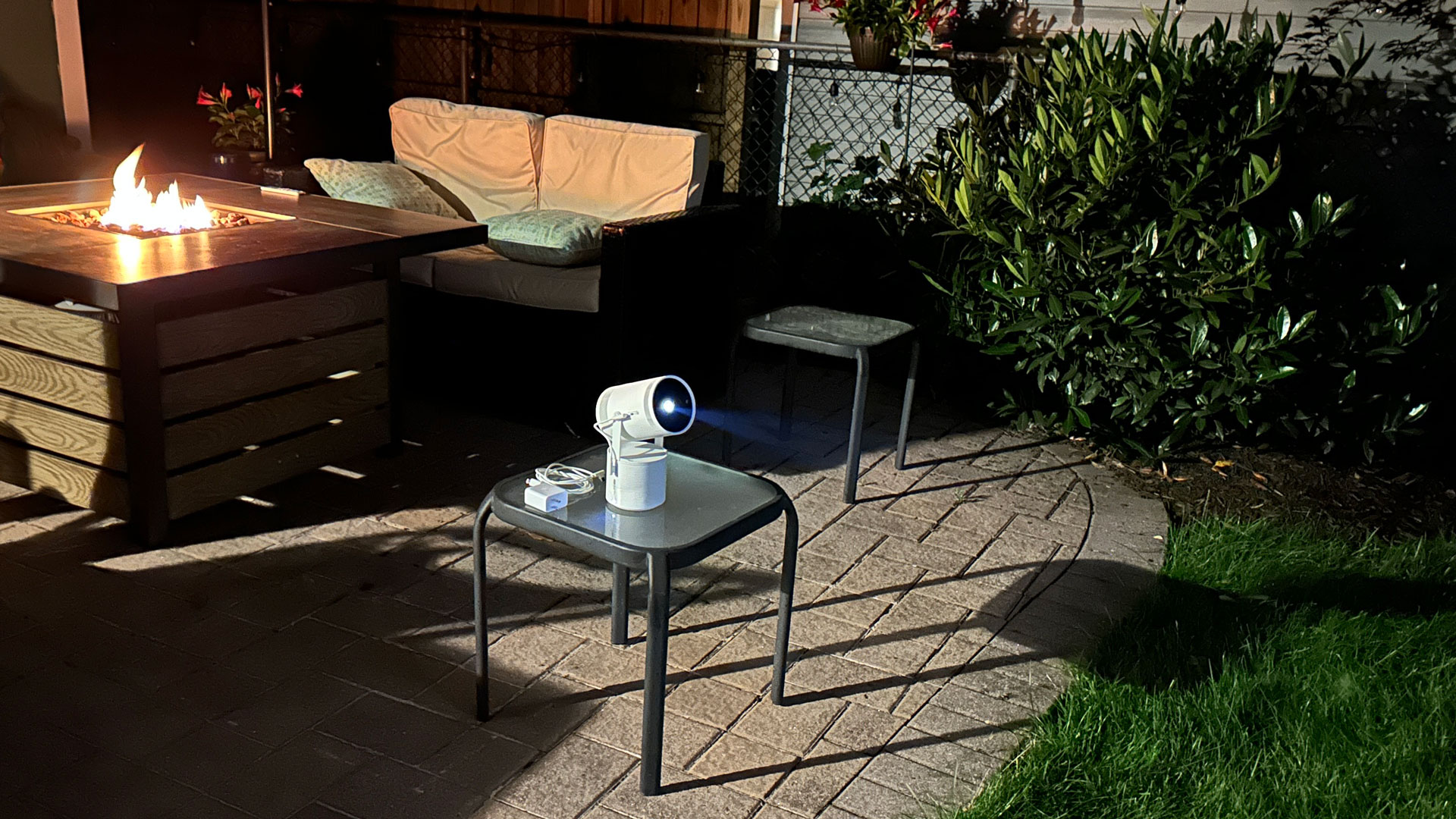
What's the best portable projector?
For many people, lugging a heavy, wired projector out to the garden might seem like a little too much work, and so a portable, battery-powered model is the way to go.
Those who are looking for a more portable setup should consider the Samsung The Freestyle 2nd Gen, which we rated as the best, as well as the XGIMI MoGo 3 Pro and LG CineBeam Q, the latter of which also supports 4K.
All of these models are great, but TechRadar's ultimate pick for outdoor cinema-ing is the Anker Nebula Mars 3, a sleek projector that works up to 1,000 lumens, can project from 30 to 200 inches, and supports 1080p.
Probably the best thing about the Nebula is its rugged design: you can really put this thing through its paces without worrying about scratches and dents, making it ideal for outdoor use when anything can happen, especially with kids around.
In our testing, we found the built-in battery lasted the entirety of a two-hour movie at 50% volume with a little over 20% charge to spare.
Retailing at around £670 ($900) at the time of writing, down from its usual £900 price tag, the Anker Nebula Mars 3 is our pick to get the projection party started.
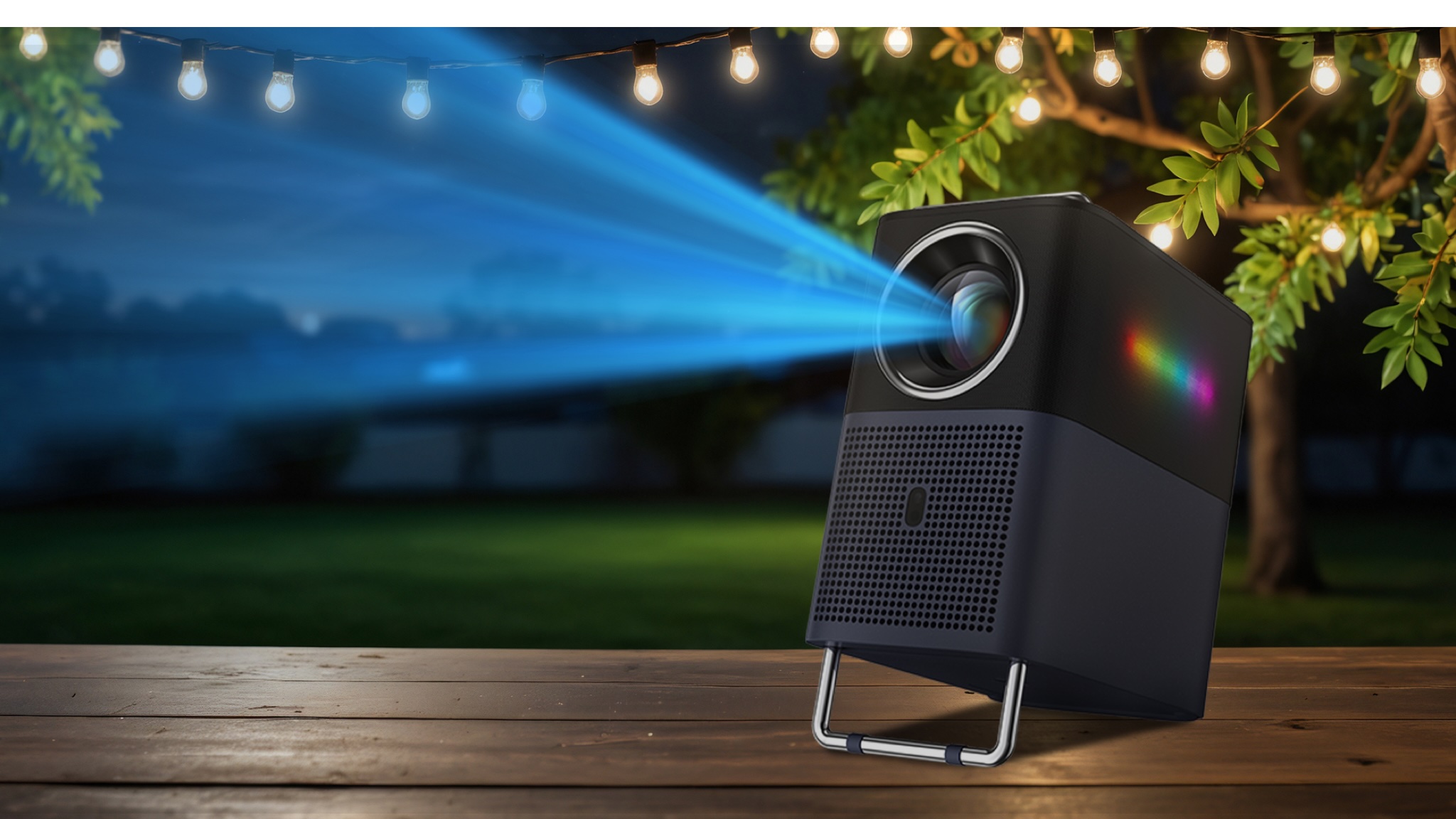
Do you really need a projector screen outdoors?
Unless you have a perfectly white, blemish-free wall, getting a projector screen is always going to make movies pop that little bit extra.
There are three types of screens: tensioned fixed-frame screens, foldable or pop-up screens, and inflatable screens, all of which have their own pros and cons.
A tensioned screen is the best option for anyone looking to get a "pro" look, since the surface area is held taught and still. The downside is that these kind of screens are less portable and are harder to store – whether that matters is down to your own personal preferences and setup.
Foldable screens are much easier to store and are ideal for compact setups, but the surface area can have a fold down the middle, making the movie watching experience slightly less ideal. Each model is different, of course, so make sure to check if you care about this.
Finally, inflatable screens are best if you want to go really, really big and can then fold down into a much smaller box.
The best option is really down to your own setup and needs: if you want to go big – like meters big – then an inflatable is the best, while a tensioned screen is perfect for cinephiles who want the highest clarity and picture quality.
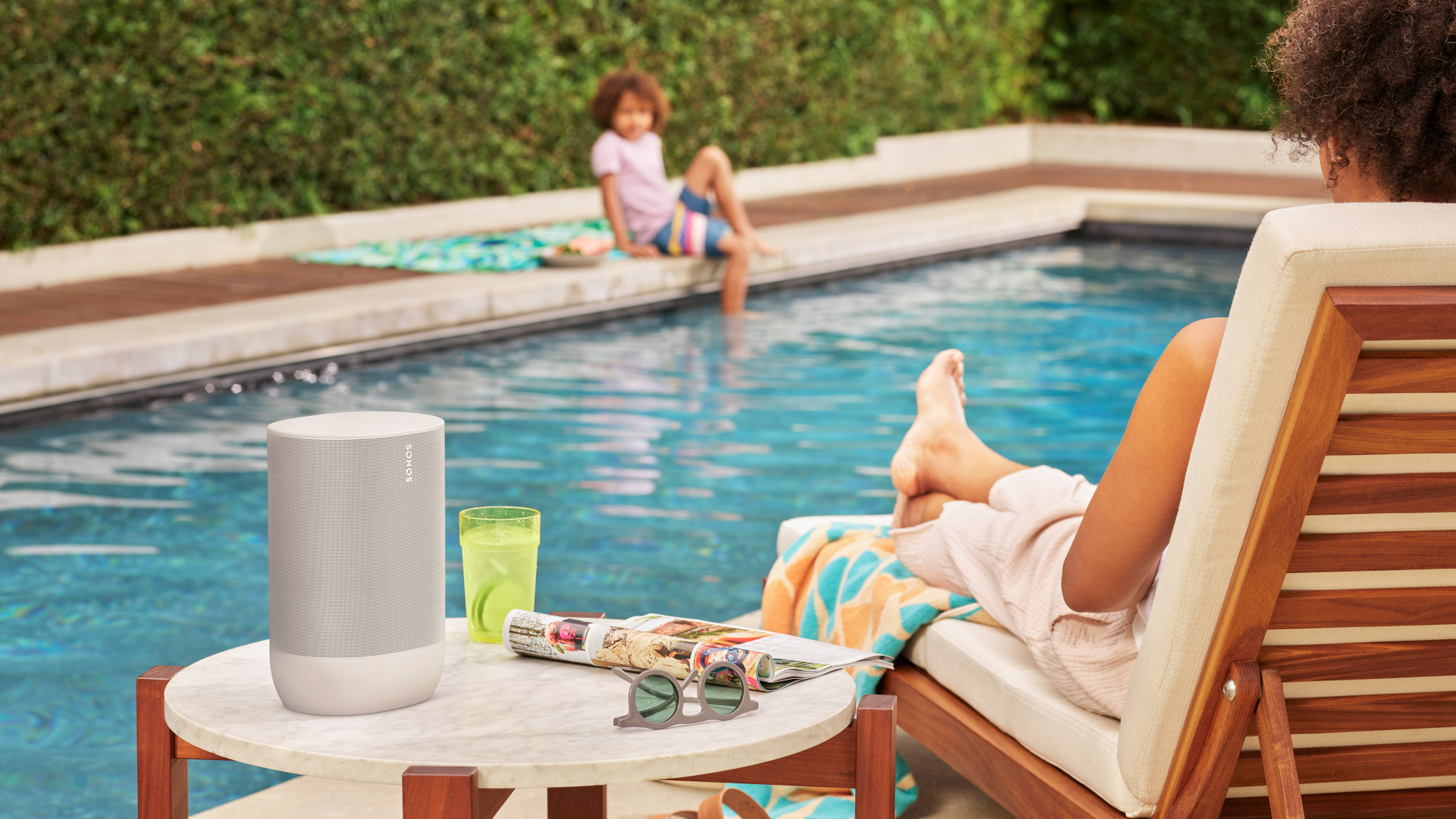
Top wireless speakers for outdoor movie nights
What's a movie night without great sound? Not very good, in our opinion.
Once you've settled on getting the right projector and finding a suitable screen, a portable speaker should be the next port of call.
It's worth noting that some projectors, like the Anker Nebula Mars 3, do come with built-in speakers and while these might be fine in a pinch, they don't really compare to even a budget Bluetooth speaker.
We recommend looking into wireless speakers for the simple reason that they uncomplicate part of the setup and also make it safer due to a lack of wires. Most portable speakers can last hours and hours in 2025, and many come with rugged (and even waterproof) designs.
Given our specific use case, it's worth choosing models with low latency, to ensure speech matches the movie, and stereo pairing, for the best cinematic sound.
The JBL Flip 7 is a great option, offering punchy, detail and full-scale sound, great battery life, and a hardy design for around £120 at the time of writing.
For Sonos fans, the Sonos Roam 2 and the Sonos Move 2 are both great options, boasting big sound, integration into Sonos' ecosystem, and long battery life. The Move 2 does get very loud, so please keep your neighbours in mind.
Ultimate Ears Wonderboom 4 is our final pick, from the brand that has really come to dominate the wireless speaker market in recent years. Rich and clear sound is coupled with solid battery life and a durable design, making it ideal for cinema nights when camping.
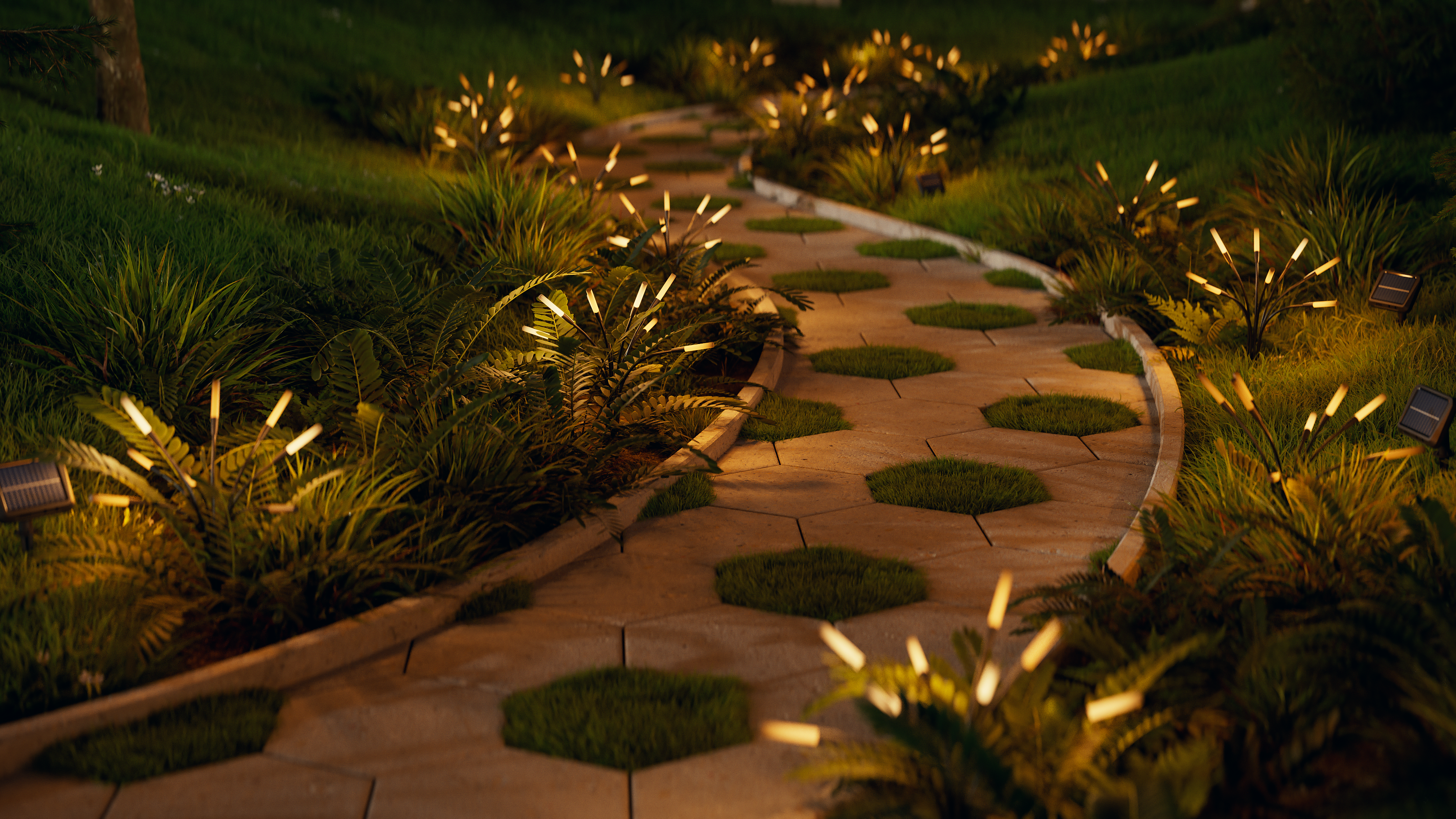
Setup tips and FAQ
Now that you've chosen your preferred projector, screen, and speakers, summer 2025 is going to be filled with movies and fun, for friends, family, and even solo.
But there are a few last things to consider.
Electricity and water don't mix, so be sure to use outdoor-rated power cables and extensions to avoid getting a nasty shock (pun intended). Additionally, choose level ground and align your projector without overusing keystone correction. To get the best internet speeds, use a Wi-Fi extender or hotspot.
Light impacts the movie experience a lot, as anyone who has a TV by a window can tell you, and so make sure to wait until sunset for the best viewing.
To close out, let's do a quick FAQ.
- Can I use these projectors in daylight? Not really. Dusk or later is best as even the brightest models struggle in full sunlight.
- Is a screen really necessary? Yes. A screen really improves contrast and colour uniformity, especially with 4K projectors.
- Will Bluetooth audio stay in sync? Often, yes. But low-latency support is important. Make sure to test in advance or use wired audio if needed.
- Do I need internet to stream outdoors? Only if you’re using streaming services. Some projectors support USB or HDMI playback offline.
You might also like...
Max Slater-Robins has been writing about technology for nearly a decade at various outlets, covering the rise of the technology giants, trends in enterprise and SaaS companies, and much more besides. Originally from Suffolk, he currently lives in London and likes a good night out and walks in the countryside.
You must confirm your public display name before commenting
Please logout and then login again, you will then be prompted to enter your display name.